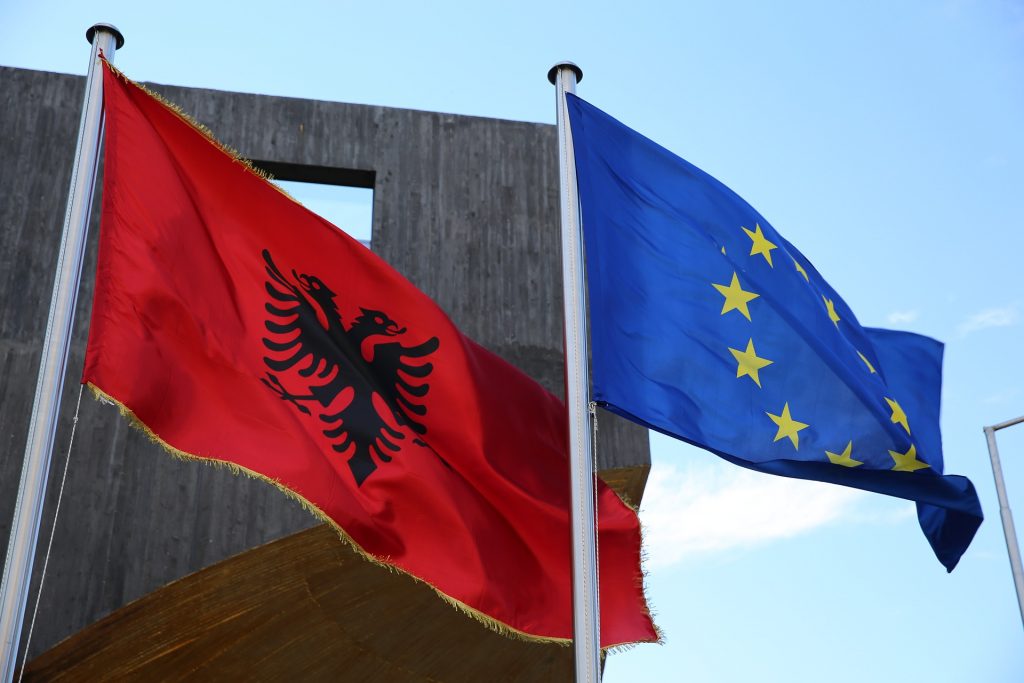BiEPAG’s Experts react: EC 2020 Progress Report on Albania
Many of us in Albania had very mixed feelings when reading the last EC report. Let me explain why.

If the executive summary of the report hypothetically were to read “this year, the wolves decided to spare the life of the sheep”, apparently, the wolves would be praised as heroes. Nevertheless, if one also considers the other finding (buried somewhere between pages 90 and 95) that “the wolves, however, tried every trick to hunt down every single sheep”, then it is clear that the sheep are the true heroes (for surviving the wolves’ hunt) and the wolves are, of course, “les mechants”.
Commission reports are increasingly seen as political and biased. To a large extent, the EC has helped to build such a perception by highlighting findings in its reports which will not make WB governments uncomfortable. Of course, one cannot accuse the EC of deception. After all, the problematic findings are usually stated in the report, although not in the highlights section. Such an approach, however, misleads the audience – whether specialised or not. Furthermore, it brings into question the credibility of the EC and its reports.
To illustrate with a few examples. The summary of the EC report for Albania notes “no progress” in relation to the freedom of expression and civil society during the reporting period. However, on page 33 the same report underlines that the counter-terrorism police (!?) arrested a 25 year old civil society activist and held her in custody for 4 days for sharing an article on her Facebook page; or that the police has beaten journalists and other civil society activists attending protests against the demolition of the national theater, and so on and so forth. These findings, combined with the fact that the Government of Albania misused the pandemic in open attack of (what’s left of Albanian) democracy, make one wonder why the freedom of expression in Albania has not declined according to the EC? Why has the defamation package which the EU itself opposed, and which is partially in force in Albania, not affected the freedom of expression systematically?
The EC report’s assessments are sometimes confusing, to say the least. As an example, take the 5 June agreement between ruling and opposition parties on electoral reform and the amendments to the electoral code adopted on 23 July. The EC argues that this implies that the condition for “consensual electoral reform”, set by the Council to open accession talks with Albania, has been met, regardless of the fact that on 5 October 2020 the ruling party adopted other amendments to the electoral code without a consensus with the opposition. It is unclear why the EC thinks that the non-consensual change of the rules on 5 October is unrelated to 5 June.
Here is another example. The EC truthfully reports that the Venice Commission issued an opinion on a dispute about the appointment procedure of one of the judges nominated in late 2019. However, the EC report neglects to mention that on the same dispute, the EU Delegation (hence the EC itself) wrongfully sided with the Government and supported the attempted illegal procedure. Why is this important, beyond its factualness? It is because the EU needs to build its credibility in the eyes of the people, and not to please WB autocrats.
The EU needs to ally with the ambition of WB citizens instead of praising the fake achievements of autocrats. If the EC reports pay lip service to the current autocracy…what will stop them from doing the same with the next autocrat?
Unfortunately, parts of the EC 2020 report for Albania seem like a Machiavellian report which sides with the ambition of daily politics in Albania but not with that of Albanian citizens. And just to be more explicit, Albanians’ ambition is not “EU membership at any cost today”. Rather, our ambition is “democracy and rule of law at any cost first… Once done with that, let’s talk about EU membership too”.
Gjergji Vurmo is the Programme Director of Institute for Democracy and Mediation (IDM), Tirana-based think tank.
This blog is originally published on biepag.eu.
